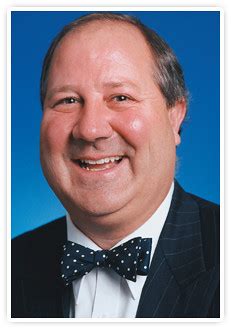A Quote by Christina Hoff Sommers
So far there has been little discussion among gender scholars about the need to engage with skeptics. They tend to view skeptics and dissenters as cranks.
Related Quotes
Cops never took anything on faith, and disbelieved every story that was told them on principle until and unless they could confirm that the story was fact in all its essentials, and even then remained wary and unconvinced. Cop shops bred skeptics. Skeptics cherished few illusions about human nature, and therefore were seldom disappointed.
If you are committed to the change, you're going to have to sideline the skeptics, or at least keep them under control. There may be a temptation to move them out but skeptics have a value - flagging weaknesses in the plan. Ideally, you will enlist their critical stance by challenging them to find ways to improve the plan as you go forward.
The Universe is vast. Nothing is more curious than the self-satisfied dogmatism with which mankind at each period of its history cherishes the delusion of the finality of existing modes of knowledge. Skeptics and believers are alike. At this moment scientists and skeptics are the leading dogmatists. Advance in detail is admitted; fundamental novelty is barred. This dogmatic common sense is the death of philosophic adventure.
I am a Christian resident of New York City. I simply read things the other Manhattanites read (NY Times, New Yorker magazine, Wall Street Journal, and many of the books they read) plus all my Christian reading. I don't do anything special to understand skeptics. I also talk to a lot of skeptics and read things they point to.
Yes, believers and non-believers and skeptics can all live together and get along. But there cannot be an imperialistic imposition of religion by the state or by the church. All people must be equal--believers, skeptics, disbelievers, atheists, and those who chose religion. Unless we are all deemed equal, and unless the morality of disbelief is deemed the equivalent of the morality of belief, we will simply be tolerated, and that is not the American way.
For my own part, I believe that in dealing with skeptics, and unbelievers, and enemies of the Bible, Christians are too apt to stand only on the defensive. They are too often content with answering this or that little objection, or discussing this or that little difficulty, which is picked out of Scripture and thrown in their teeth. I believe we ought to act on the aggressive far more than we do, and to press home on the adversaries of [Biblical] inspiration the enormous difficulties of their own position.
The view that we know less than we thought we knew about how to change the human condition came, in time, to be called neoconservatism. Many ... , myself included, disliked the term because we did not think we were conservative, neo or paleo. (I voted for John Kennedy, Lyndon Johnson and Hubert Humphrey and worked in the latter's presidential campaign.) It would have been better if we had been called policy skeptics; that is, people who thought it was hard, though not impossible, to make useful and important changes in public policy.
In any event, it has never been true that we ignore mainstream science; and anyone who reads AEI publications closely can see that we are not 'skeptics' about warming. It is possible to accept the general consensus about the existence of global warming while having valid questions about the extent of warming, the consequences of warming, and the appropriate responses.


































